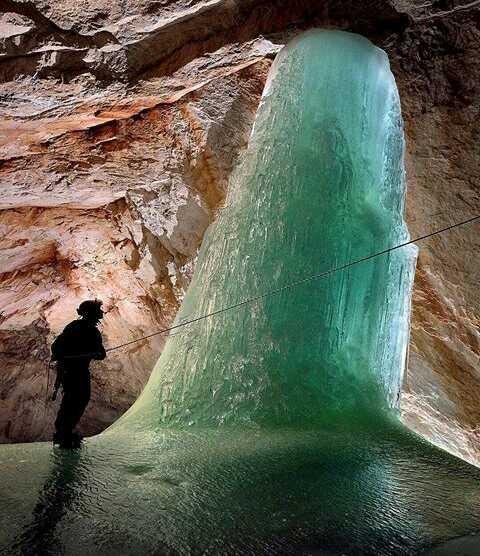
In silhouette, Dr. Marc Luetscher assesses the potential for finding the illusive cryogenic calcite crystals (CCC’s) hiding inside this giant ice formation inside Eisriesenwelt Eishöhle, Werfen (South Salzburg) in Austria. Mountain regions respond sensitively to climate change. Taking advantage of Alpine caves, a team of scientists led by Swiss Paleoclimatologist Dr. Marc Luetscher from the Swiss Institute for Speleology and Karst Studies (SISKA), is working to understand how permafrost has evolved through time. Ice caves form through a combination of snow intrusion and/or congelation of water infiltrating a karst system. Often up to several centuries old, the climate record of this ice remains largely under-studied. Today we are also able to tell if a cave was an ice cave in the past. This is achieved by looking for cryogenic cave calcites. These form when water enters a cave, and freezes and turns to ice. In this process, the water becomes progressively enriched in ions to the point that it becomes super-saturated and precipitates calcite.
Fantastic man... I bet there are a whole host of hidden treasures amongst formations like that.
Downvoting a post can decrease pending rewards and make it less visible. Common reasons:
Submit